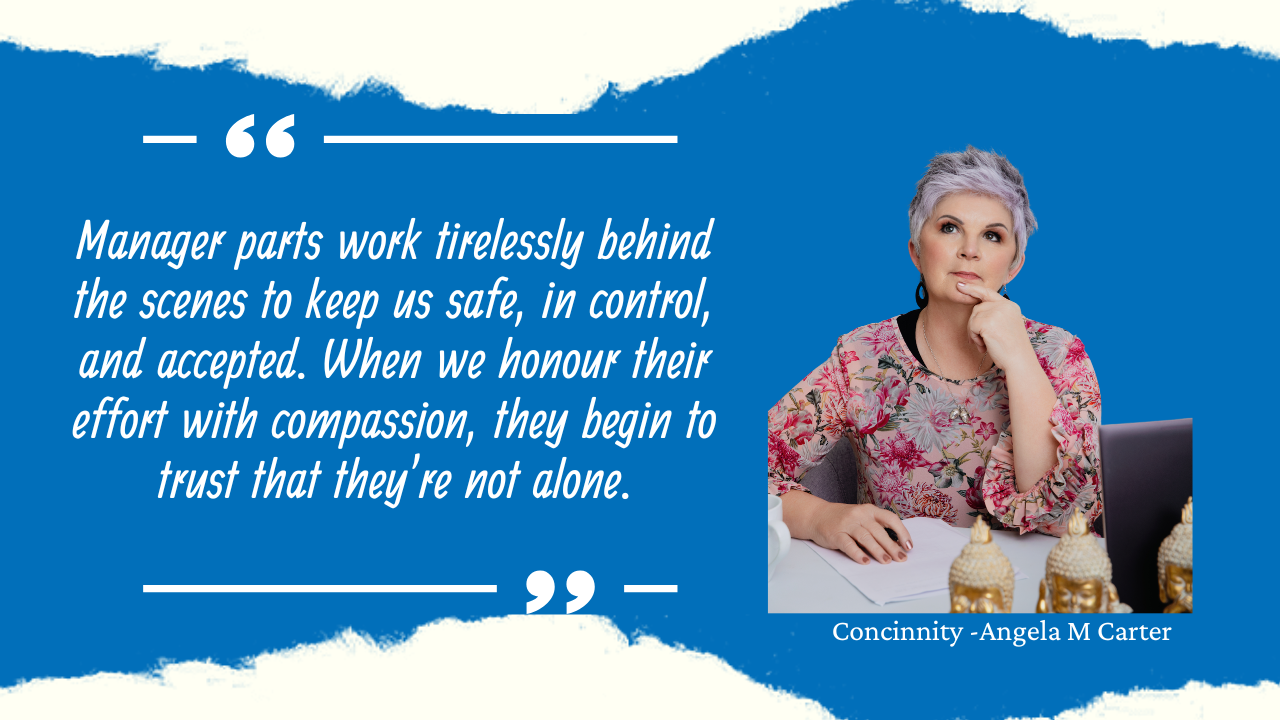The Role of Managers In IFS
Apr 10, 2024
The Role of Managers in IFS
In the Internal Family Systems (IFS) model, the concept of "managers" plays a pivotal role in understanding an individual's internal system dynamics. These parts, termed managers, are responsible for maintaining the individual’s day-to-day functioning and protecting them from perceived threats and vulnerabilities. By identifying and understanding these managerial parts, therapists and clients can gain profound insights that facilitate healing and personal growth.
Managers are proactive parts of the self that take responsibility, control, and protection roles. They are the architects of our daily lives, influencing our decisions, behaviours, and interactions to minimise harm and ensure safety. These parts work tirelessly to keep the individual's more vulnerable parts, known as exiles, from surfacing and causing emotional distress.
Characteristics of Managers
Managers exhibit a range of behaviours and strategies aimed at keeping the system stable and safe. They may manifest as perfectionism, critical thinking, people-pleasing, or planning and organising tendencies. While these characteristics can be beneficial, they sometimes operate from a place of fear or anxiety, leading to overcontrol and rigidity, which can stifle spontaneity and emotional expression.
The Importance of Identifying Managers
Identifying managers is crucial in IFS therapy because they often act as gatekeepers to the more vulnerable exiles. They can obstruct the therapeutic process by preventing access to underlying emotional wounds that need healing. Recognising and understanding the intentions of these managerial parts allows the therapist and client to negotiate with them, creating a safe space for healing to begin.
Understanding Managers for Therapeutic Insight
Engaging with managers in therapy involves acknowledging their protective role and understanding their fears and motivations. This process can illuminate the underlying dynamics of an individual’s internal system, revealing how past traumas and experiences have shaped their behaviour and coping strategies. Through this understanding, managers can be encouraged to relax their control, allowing the individual to access and heal their exiled parts.
The Process of Working with Managers
Working with managers in IFS therapy involves several steps:
Identification: Recognising the manager parts and their protective roles in the individual’s life.
Exploration: Understanding these managers' history, fears, and intentions to appreciate their protective nature.
Negotiation: Establishing trust and cooperation between the managers and the Self to allow access to the exiled parts.
Transformation: Assisting managers in updating their roles to support the individual's healing and growth.
The Outcome of Understanding Managers
When managers are understood, and their roles are transformed, they can become valuable allies in the therapeutic process. They can facilitate access to exiled parts, allowing for a deeper healing process. This leads to a more integrated and balanced internal system, where parts can function harmoniously under the leadership of the Self.
The Journey Home®
Understanding the role and function of managers within the IFS framework is a gateway to profound therapeutic insights. It allows for a compassionate and nuanced approach to therapy, where protective parts are honoured and engaged in the healing process. Therapists can help clients navigate their internal worlds by identifying and understanding managers, leading to significant healing and personal transformation.
Posted with abundant love and kindness for all gentle sous
Angela xox
Join our Therapist Circle Group to connect with other like-minded therapists. Click the link below to access the circle. We look forward to journeying alongside you.


